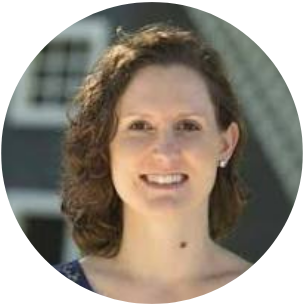I hope all of you had a restful and joyous winter break. We’ve had a wonderful academic year so far and I look forward to welcoming our students back to campus as we begin the spring term.
This also is Walk the Walk Week at Notre Dame, a weeklong series of events to help us consider how we can take an active role in making the University and the College more welcoming and inclusive. You can find more information on the Walk the Walk website. Thanks to Kristen Collett-Schmitt for organizing Mendoza’s contributions to the commemoration. (More information about upcoming WTWW events is below).
I am pleased to share the latest updates on our strategic priorities as we continue to work toward our shared vision to Grow the Good in Business.
Elevating Research Impact
Our top priority is to continue to elevate our research, including scholarship that addresses contemporary societal challenges. We have seen remarkable investment and growth in our research efforts this year and I look forward to announcing exciting research endeavors later this spring. The efforts include funding the construction of the Mendoza Behavioral Lab in a new physical space in our lower level and the establishment of the Humanitarian Operations Management Lab (HOPE) directed by ITAO’s Alfonso Pedraza-Martinez. We also will hold a second event in the University Chair Public Lecture Series this spring to recognize a faculty member for career research excellence, following this fall’s enormously successful event honoring Mike Crant. Finally, we’re excited to host the Accountancy Department’s Spring Research Conference on April 26.
Transformative Undergraduate Educational Experience
The undergraduate experience at Mendoza continues to evolve to provide students with a holistic education that goes beyond traditional business knowledge. By expanding successful initiatives such as the Business Honors Program and strategically enhancing the quality and accessibility of our majors and minors (including six double-major combinations and eight different minors), we aim to instill in our students a sense of purpose, preparing them not just for successful careers but for meaningful contributions to the world.
In the fall, we launched the Maximizing Mendoza pilot course for first-year business students, which was a great success! Taught by Jen Washko and Andy Wendelborn, the 98 students completing the course received a better understanding of the academic options that Mendoza provides, a solid foundation on which to discern their professional goals and connections with each other and the College that may have otherwise not been possible. One student shared, “This class was an amazing way to integrate into Mendoza. There are so many incredible opportunities that I would have never been exposed to if I wasn’t in this class.”
Our undergraduates also will have an exciting new research-based opportunity this semester as part of the launch of the Undergraduate Research Scholars Program (URSP) led by Hal White, Vincent and Rose Lizzadro Professor of Accountancy. This spring, Hal will be teaching the new course, Introduction to Research Scholarship, as the first offering for URSP, which, as he describes it, takes an interdisciplinary approach to “allow students to progress in their scholarly journey from being a recipient of knowledge to an active creator of knowledge.” Hal will provide more details about this innovative program in an upcoming Mendoza Exchange column.
Graduate Program Excellence
Our flagship MBA program at Mendoza continues to distinguish itself through unique experiential learning opportunities and an unrivaled sense of community. In particular, the second annual Grow the Good Gala raised more than $17,000 to support Mercy Works, a division of Campus Ministry that helps students to connect with and serve those in need in the local community.
During Fall Grow Irish Week, the Experiential Learning team (Lara Brian, Stephanie Drudge, Megan Piersma and Ben Wilson) developed learning opportunities for 358 students from four degree programs (MBA, MSM, MNA and MSA) serving 27 sponsor organizations in the South Bend region, across the United States and around the world. (Watch a video of a project in Mexico.) This spring, the Experiential Learning team will serve 440 students total from the MBA, MSA, MSM, MSBA and MNA programs.
Finally, we began developing our reimagined Global EMBA program for a fall 2024 launch, including creating new immersions in Singapore and Ireland.
Innovative Curricula and Formative Experiences
Our curricula is designed to bridge the gap between business disciplines and the human perspective. By doing so, we are equipping our students with the skills and mindset to navigate the complexities of an ever-changing society. We continue to expand our distinctive portfolio of experiential learning opportunities, including for our undergraduate students. In particular, our Powerful Means Initiative recently attracted major benefaction toward its permanent endowment. PMI engages undergraduate students in design thinking, innovation and entrepreneurship through efforts supporting St. Bakhita’s Vocational Training Center for young women in Kalongo, Uganda. My congratulations to Wendy Angst and her team for their remarkable work.
Diverse and World-Class Faculty and Staff
The recruitment, development and retention of a diverse, world-class faculty and staff remain a cornerstone of our success. We are proud to have attracted exceptional talent that aligns with our mission and vision, including increasing our tenure track and research faculty and hiring new staff leaders on our graduate enrollment and marketing teams. Their contributions elevate Mendoza's standing and advance our commitment to excellence in education, research and service.
Cultivating an Engaged and Inclusive Culture
Our community continues to thrive as a close-knit group of students, faculty and staff. Grounded in the University's Catholic mission, we foster an engaged, caring and inclusive culture. Whether through embracing a “team of teams” approach for our workforce through new strategies, tools and collaborations, or by bringing the College community together by way of our signature Mendoza Rally and other events, this commitment to community strengthens our bonds, creating an environment where everyone can excel and contribute their unique perspectives to our shared mission.
As we move forward, I am confident that the collective efforts of our community will propel us to even greater heights. Together, we will continue to uphold the values that define Our Lady’s University and make a lasting impact on business and society.
Thank you for your dedication and hard work!
In Notre Dame,
Martijn





